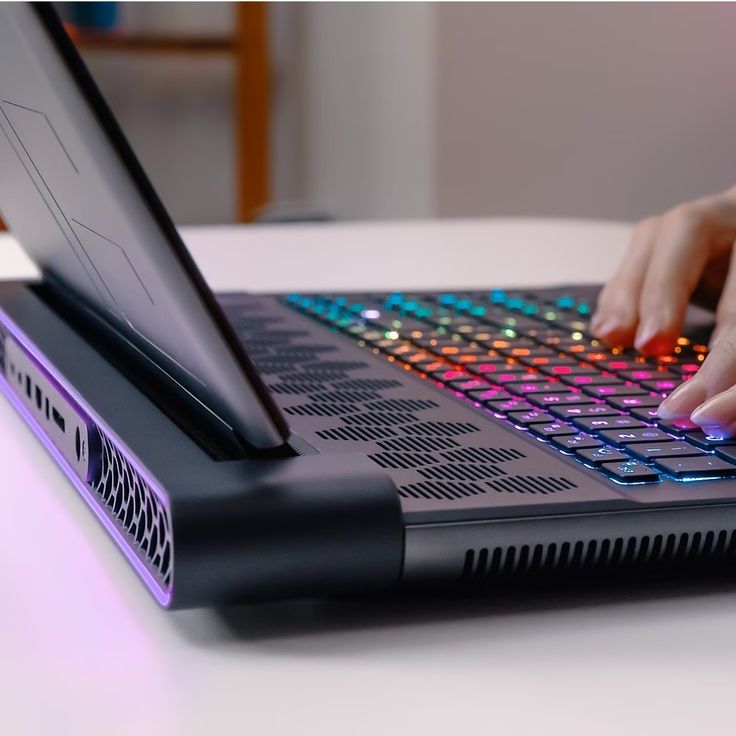When it comes to gaming, performance is everything. Gamers often find themselves caught in the age-old debate: should you invest in a gaming laptop or a desktop? Each option has its advantages and disadvantages, and the right choice depends on your specific needs and preferences. In this post, we’ll explore the key factors to consider, comparing gaming laptops and desktops to help you make an informed decision.

Performance
Desktops: The Powerhouses
Desktops typically offer superior performance compared to laptops gaming laptop. This is largely due to their ability to house larger components, including high-end GPUs, CPUs, and cooling systems. A powerful desktop can easily handle the latest AAA titles at maximum settings, ensuring a smooth gaming experience with high frame rates. Furthermore, desktops can be upgraded over time, allowing you to swap out older parts for the latest technology without needing to buy an entirely new system.
Laptops: Portability Meets Power
Gaming laptops have made significant strides in performance, often coming equipped with capable GPUs and CPUs that can rival those in desktops. However, due to size constraints, they may not match the performance levels of a desktop with similar specifications. That said, many modern gaming laptops are capable of running most games at high settings, and with advancements in cooling technology, they are increasingly able to maintain performance levels comparable to desktops.
Portability
Desktops: Stationary Setups
The most significant drawback of desktops is their lack of portability. Once set up, a desktop is meant to stay in one place. This can be a limitation if you frequently move or attend LAN parties. Transporting a desktop can be cumbersome, especially if you have multiple monitors and other peripherals.
Laptops: Gaming on the Go
One of the biggest advantages of gaming laptops is their portability. They are designed for gamers who want the freedom to play anywhere, whether it’s at home, a friend’s house, or on the go. Many gaming laptops come with powerful batteries, allowing for extended gaming sessions without being tethered to a power source. If you travel often or prefer a flexible gaming setup, a laptop is the way to go.
Price
Desktops: Better Value for Performance
When comparing the cost of a gaming desktop and a laptop with similar specifications, desktops generally offer better value. You can often find more powerful components at a lower price than their laptop counterparts. Additionally, desktops allow for easier upgrades and repairs, saving you money in the long run.
Laptops: Paying for Portability
Gaming laptops tend to be more expensive than desktops with similar specs. The compact design and technology needed to make high-performance components fit into a smaller form factor often lead to a premium price. However, the convenience and portability may justify the cost for many gamers.
Upgradability and Customization
Desktops: Easy to Upgrade
One of the significant advantages of desktops is their upgradability. You can easily swap out graphics cards, add more RAM, or upgrade your storage. This flexibility allows you to keep your system up-to-date without needing to invest in a new computer. Customization options are also broader, from case design to cooling solutions.
Laptops: Limited Upgradability
While some gaming laptops allow for limited upgrades (like adding RAM or changing storage), most components are soldered to the motherboard or housed in a way that makes replacement difficult. This can lead to a situation where your laptop becomes outdated faster than a desktop, necessitating a complete replacement rather than an upgrade.
Display and Peripherals
Desktops: A Full Setup
Desktops allow you to choose your monitor, keyboard, and mouse, giving you the freedom to create a personalized gaming experience. Large monitors with high refresh rates can significantly enhance your gaming experience, providing a more immersive experience. Additionally, desktops can support multiple monitors for an expansive view.
Laptops: Integrated Displays
Gaming laptops come with built-in displays, which can vary in quality. While many laptops now offer high refresh rates and good color accuracy, they still may not match the visual experience of a dedicated gaming monitor. You can connect an external monitor, but that defeats the portability aspect.
Conclusion: What’s Right for You?
Ultimately, the choice between a gaming laptop and a desktop comes down to your lifestyle and gaming needs. If you prioritize maximum performance, upgradability, and a custom setup, a gaming desktop is the better choice. However, if you need portability and convenience without sacrificing too much power, a gaming laptop is an excellent option.